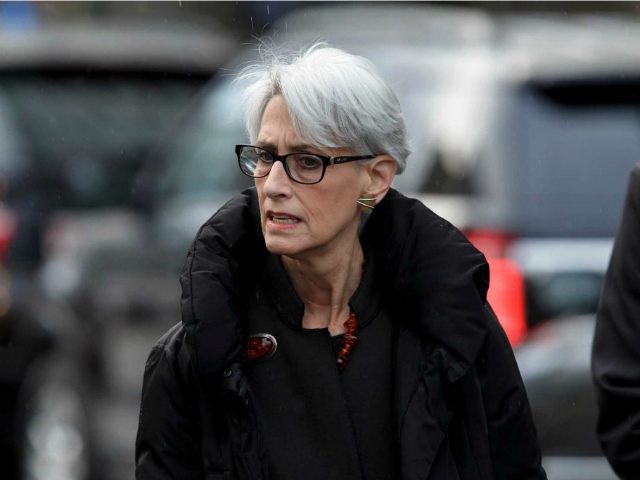The U.S. State Department announced on Wednesday that Deputy Secretary of State Wendy Sherman will visit China on July 25 and 26.
The State Department said Sherman will meet with officials of the People’s Republic of China (PRC), including Foreign Minister Wang Yi. She will be the highest-ranking member of the Biden administration to visit China so far.
The Associated Press (AP) on Wednesday mentioned rumors that China nearly scuttled the Sherman trip by refusing to send any high-level representatives to meet with her. Several anonymous “senior U.S. officials” told the AP Sherman would not have agreed to the visit unless she was allowed to meet with top-ranking Chinese officials.
“These discussions are part of ongoing U.S. efforts to hold candid exchanges with PRC officials to advance U.S. interests and values and to responsibly manage the relationship,” the announcement said. “The Deputy Secretary will discuss areas where we have serious concerns about PRC actions, as well as areas where our interests align.”
The Chinese Foreign Ministry responded in its own statement on Tuesday:
China will make clear to the United States its position on the development of Sino-US relations and its firm attitude in safeguarding its sovereignty, security and development interests, and demand that the United States stop interfering in China‘s internal affairs and harming China’s interests.
Foreign Ministry spokesman Zhao Lijian said on Wednesday that China would not allow Sherman to “interfere” with Chinese “internal affairs” such as its human rights abuses in Xinjiang province, the oppression of Hong Kong, or Beijing’s threats to invade Taiwan.
Zhao accused the U.S. and its allies of being “stuck in the Cold War mentality” and demanded they “stop undermining regional peace and stability.”
In a less belligerent portion of his remarks, Zhao suggested climate change as an issue where the U.S. and China “share common interests” and should “play an exemplary role in the international community” – but even here, the spokesman inserted a threat that climate cooperation is only possible if the U.S. does not “wantonly interfere in China’s internal affairs and harm China’s interests.”
Sherman’s trip to China comes after the U.S. and its allies accused China of waging a large-scale cyberespionage campaign against government and business targets around the world. The U.S. Justice Department on Monday unsealed indictments against four Chinese nationals, identified as agents of the PRC Ministry of State Security, for their involvement in the scheme.
The PRC has also been angered by growing international interest in the possible origins of the coronavirus at the Wuhan Institute of Virology despite the Chinese government’s insistence that the laboratory was secure, increasing pressure against China’s human rights abuses against the Uyghur Muslims, the United Kingdom’s announcement that it will permanently deploy two warships to Asia, and the Western world’s continued rejection of Chinese territorial claims in the South China Sea.
The Biden administration on July 11 continued the Trump administration’s policy of formally denouncing Beijing’s claims over the South China Sea on the fifth anniversary of a landmark international court ruling against China – which Beijing has resolutely ignored, despite its constant talk of supporting a “rules-based international order.”
“Nowhere is the rules-based maritime order under greater threat than in the South China Sea,” Secretary of State Antony Blinken said on Sunday, using language nearly identical to that of his predecessor Mike Pompeo.

COMMENTS
Please let us know if you're having issues with commenting.